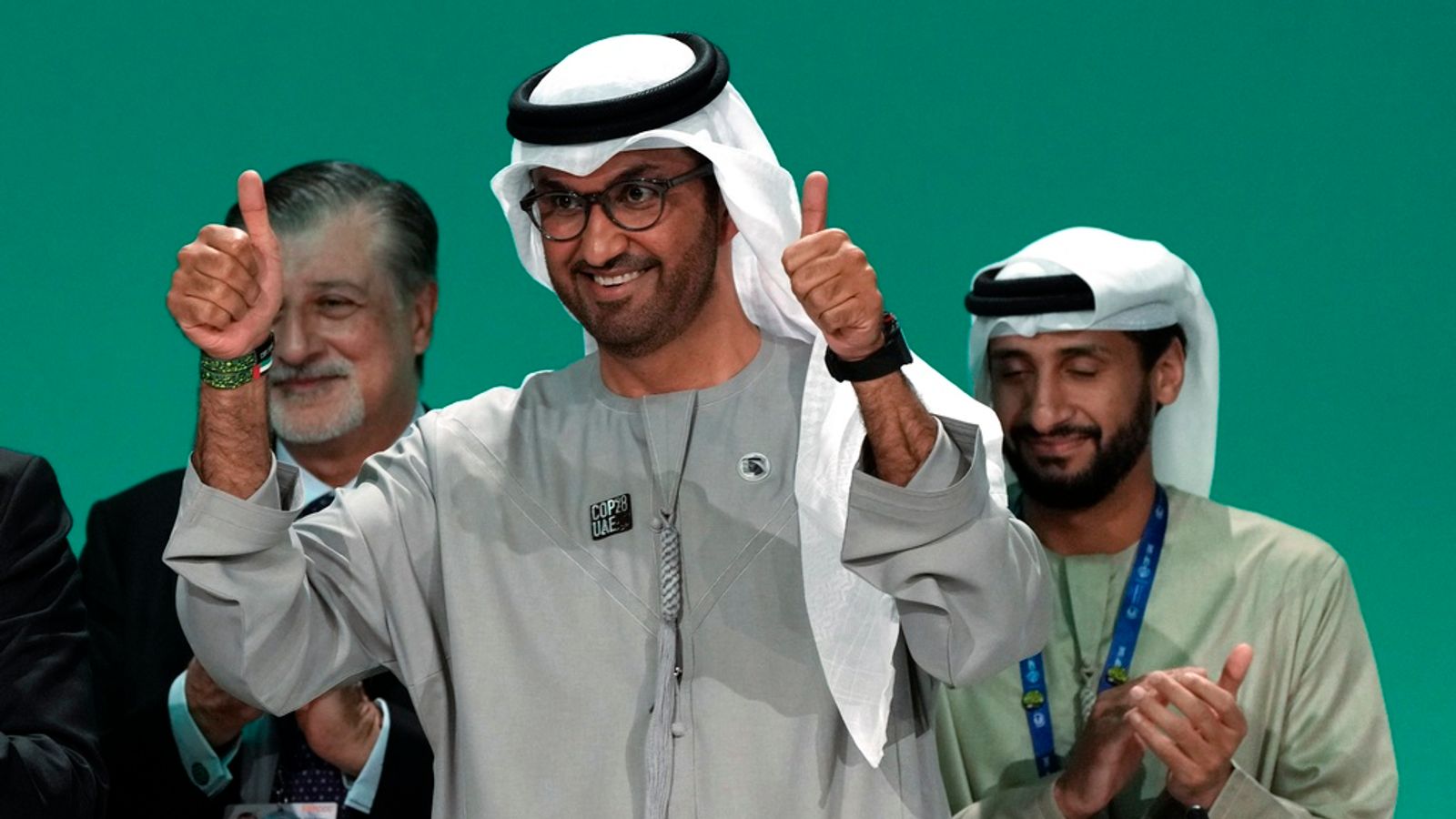A lot of what happens at a United Nations climate summit is just hot air: voluntary pledges, non-binding agreements, PR opportunities and showboating from those who want to talk the talk but not walk the walk.
But a lot is far more than that.
That is why it takes two weeks and that is why countries fight so hard – many up until the small hours today to clinch the deal they want.
It is historic to get 198-odd countries to agree to “transition away” from fossil fuels – the first such commitment in 28 years of COP climate summits.
For years this has been the elephant in the room, and tackling it square-on would have been unimaginable only two years ago, when even mentioning “coal” was taboo.
But there is one key test that will decide if COP28 truly did what was needed: whether it will limit global warming to 1.5C above pre-industrial levels, before humans started burning fossil fuels at scale.
At COP21 in France in 2015, countries struck the historic Paris Agreement to limit warming ideally to 1.5C, in a bid to fend off worse floods, drought and heat from climate change.
What does the COP28 deal to ‘transition away’ from fossil fuels actually mean?
COP28: Is this ‘the beginning of the end’ for fossil fuels?
Lego, fossil fuels and the COP28 climate deal: What toy bricks tell us about the immense difficulties of going green
When the UK hosted COP26 in Glasgow, it coined the catchphrase of “keeping 1.5C alive”.
Last year, after COP27 in Egypt, UK climate lead Alok Sharma said 1.5C was alive, but “on life support”.
In November, new UN analysis found the world was on course for 2.8C of warming.
COP28 in Dubai could have given 1.5C a little injection.
That would come not just from the plan to wind down fossil fuels, the primary cause of climate change, but also from other measures.
These include a nod to the need for greenhouse gas emissions to start falling from 2025, a plan to triple renewable power by 2030 and a demand that every country ramps up their climate action plans.
Marshall Islands climate envoy Tine Stege said 1.5C is “barely breathing” – but it “wouldn’t have been alive without this step for sure”.
Professor Piers Forster, interim chair of the UK government’s Climate Change Committee and COP veteran, told me it has kept 1.5C alive “only if all countries act on the words”.
Not only is that a huge “if”, but we know from experience that many promises made at United Nations summits are broken.
These include a missed target by rich countries to send $100bn a year to developing nations to help them switch to clean power and adapt to climate change.
Again, in Dubai, the biggest failure has been the missing money from developed countries who have caused climate change to finance the switch to clean power in developing nations.
Without this cash it is hard to see how all the promises will be fulfilled – and radical change is needed to limit warming to 1.5C.
The text also contains a “litany of loopholes”, as the small island states put it.
Please use Chrome browser for a more accessible video player
It allows a role for “transitional fuels” – code for gas, which is cleaner than coal but still bad for the climate. It asks countries to endorse technology that keeps fossil fuels going by capturing the emissions and burying them – but this tech has so far failed to scale up.
To borrow a metaphor from Pacific archipelago nation the Marshall Islands, which is battling to save its islands from being washed away, its wells from being contaminated by saltwater from rising seas:
They say we are in a leaky boat.
They say the boat is going in the right direction, but it needs everyone to be bailing out the water.
This document politely asks, but does not force all hands on deck.






















